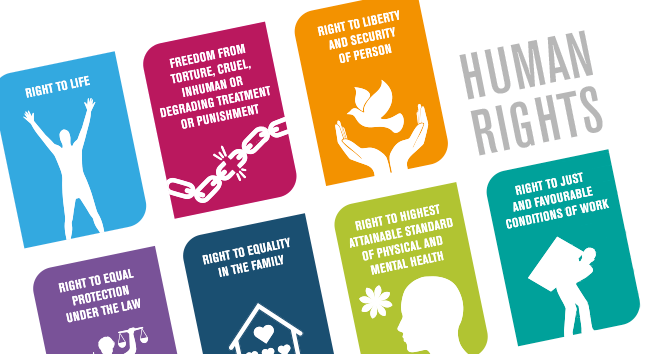By: Nasir Jamil
In 2023, Pakistan grappled with a complex array of human rights challenges amidst ongoing political, social, and economic transitions. Despite some advancements and reforms, significant hurdles persisted, prompting concerns from both international observers and domestic human rights advocates. Here’s an overview of the state of human rights in Pakistan in 2023, examining key issues, developments, and areas for improvement.
Freedom of expression faced legal and extrajudicial challenges. While the constitution guarantees these freedoms, journalists, bloggers, and activists often encounter harassment, intimidation, and violence. The use of blasphemy laws to suppress dissent and the targeting of online expression through cyber laws restricted media freedom, leading to self-censorship.
Moreover, protection of civil and political rights also remained a major concern. Instances of enforced disappearances, extrajudicial killings, and arbitrary arrests persisted, particularly in conflict-affected regions like Balochistan and Khyber Pakhtunkhwa. Human rights defenders, political activists, and marginalized communities faced intimidation and violence, often with impunity for perpetrators.
Additionally, despite legislative reforms, women continued to face systemic discrimination, violence, and inequality. Honor killings, domestic violence, and forced marriages remained prevalent, exacerbated by patriarchal norms and inadequate legal protection. Despite government efforts, implementation gaps and cultural barriers hindered progress in addressing gender-based violence and promoting women’s empowerment.
Furthermore, Pakistan’s religious minority communities faced discrimination, persecution, and violence. Blasphemy accusations, mob attacks, and forced conversions threatened religious freedom and communal harmony. Extremist groups targeted religious minorities, deepening social divisions and undermining Pakistan’s pluralistic heritage. Safeguarding minority rights and repealing discriminatory legislation were crucial steps to protect religious freedom.
The Economic inequality, poverty, and lack of access to basic services persisted, particularly among marginalized communities such as rural populations, ethnic minorities, and internally displaced persons. Weak enforcement of labor rights and inadequate social protection programs exacerbated socio-economic disparities, perpetuating cycles of poverty and exclusion.
Pakistan’s human rights landscape in 2023 reflected a mix of progress and challenges. While there were some governmental efforts to address human rights concerns, significant gaps remained in implementation and accountability. Addressing these challenges required sustained efforts from governmental bodies, civil society, and the international community to promote and protect human rights for all Pakistanis.


